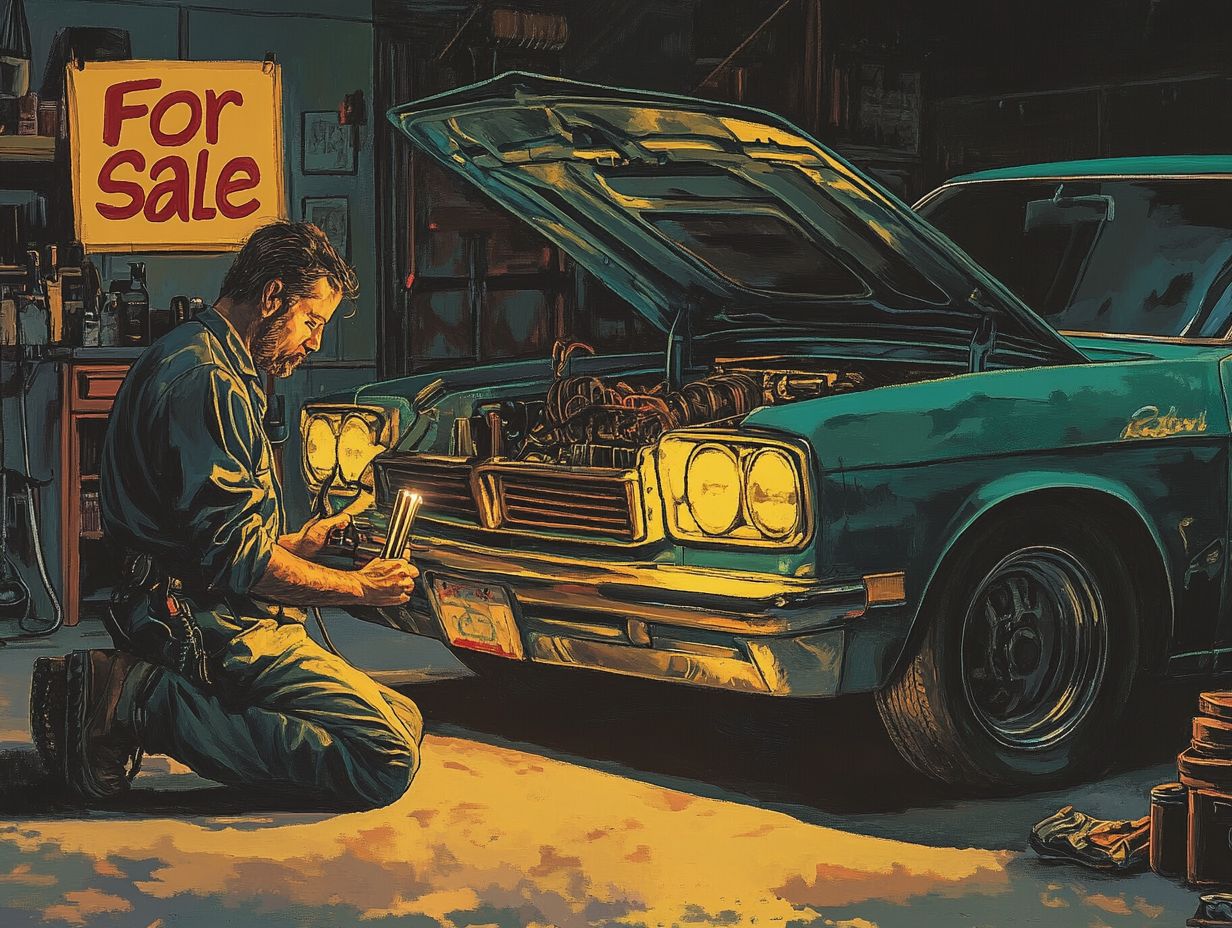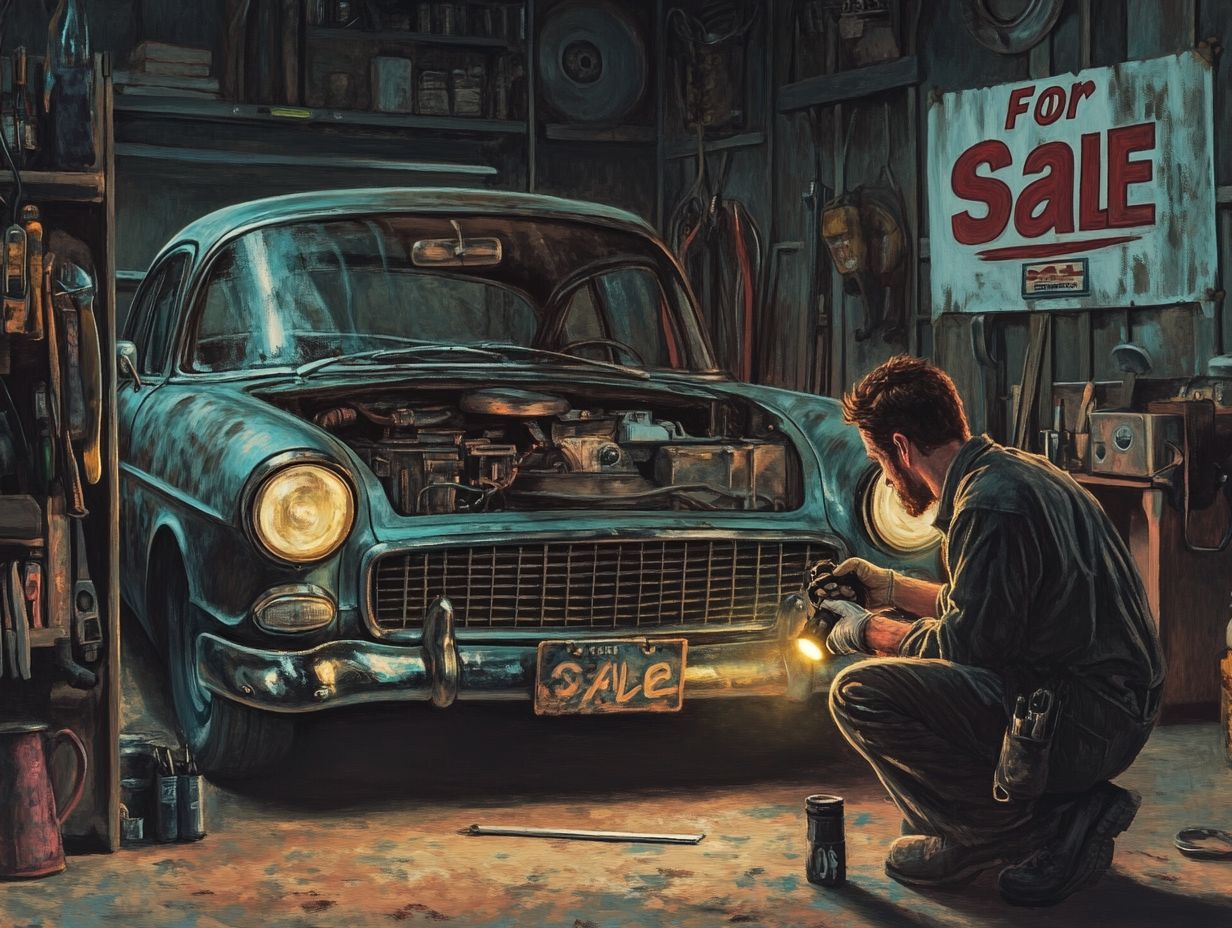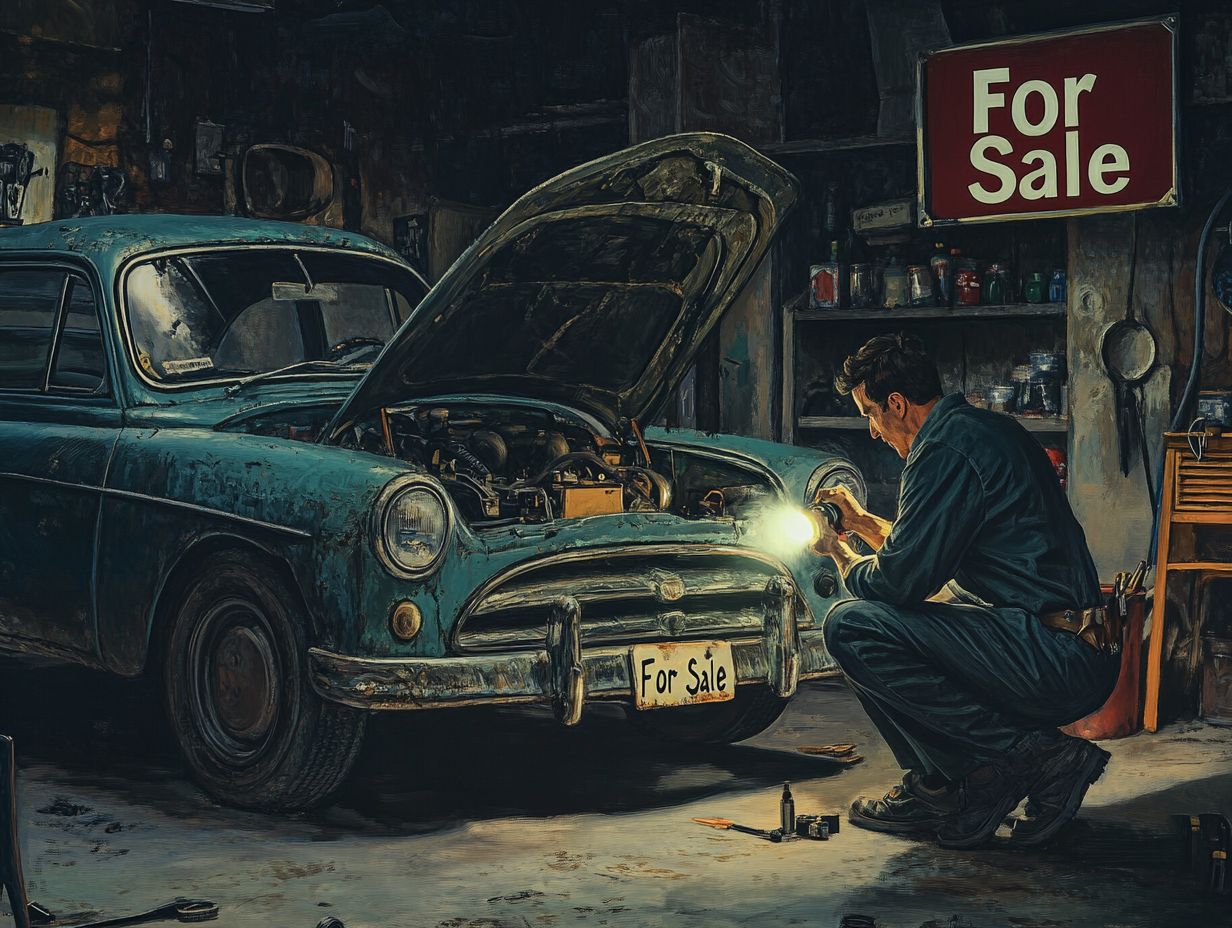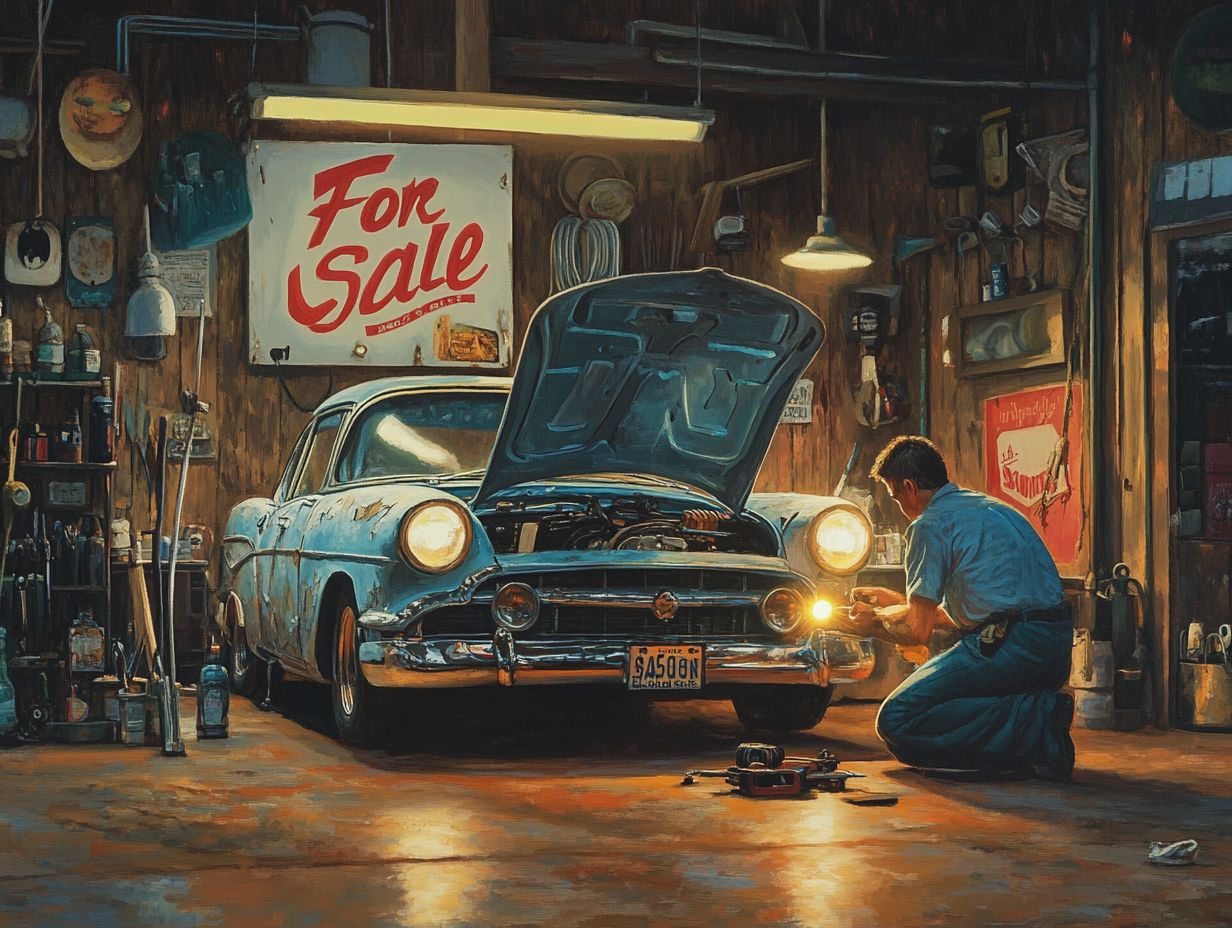Before I buy a car, should a mechanic check it out?
Buying a used car can feel like a thrilling adventure, but it can also be a bit overwhelming. With so many options out there, I know how important it is to make sure I’m making a sound investment.
Getting a mechanic’s inspection is a game-changer for spotting hidden issues and giving me that peace of mind I really need to make an informed decision.
This article is here to walk me through why having a mechanic check out a used car is essential, what to look for in a qualified professional, and how to make sense of the findings so I can negotiate a fair price.
Let’s dive in and give the power to my buying journey!
Importance of Having a Mechanic Inspect a Used Car

When I’m in the market for a car, I can’t stress enough how crucial it is to have a mechanic do a thorough inspection. This step really can change the game and help me make an informed decision, steering clear of that dreaded buyer’s remorse.
A certified mechanic can assess the condition of the car and give me the lowdown on important aspects like engine health, brake system integrity, and the transmission.
Plus, getting a pre-purchase inspection gives me some serious negotiation power because I’ll know about any potential issues upfront. That way, I’ll know exactly what I’m getting into before I seal the deal.
Why It’s Essential for Making an Informed Purchase
Understanding why I need to get a car inspection before buying a used vehicle has saved me from some serious headaches and expensive repairs down the line. A thorough vehicle check gives me a clear picture of the car’s current condition and lets me review its warranty and vehicle history report, so I can be sure it’s reliable.
It’s crucial for ensuring that important safety features like brakes, lights, and tires are in good shape, which helps reduce risks later on. By checking the mileage, I can get a handle on the wear and tear, helping me make better decisions about any maintenance that might be on the horizon.
Figuring all this out can really give me the upper hand in negotiations, too. The inspection findings might reveal issues that could impact future upkeep costs, ultimately providing me with peace of mind in my automotive purchase.
What to Look for in a Mechanic
Choosing the right mechanic for my pre-purchase inspection is such an important step in figuring out if that used car is a reliable choice. I always look for a certified mechanic who has experience with the type of vehicle I’m interested in because their qualifications can really impact how accurate the diagnostics are.
I also like the idea of going with an independent mechanic; they can be a more budget-friendly option and provide a thorough inspection without any dealership bias.
Qualifications and Experience
When I’m evaluating mechanics, I always check their qualifications and experience. It’s crucial for ensuring I get the best possible car inspection. An automotive expert should have certifications from recognized organizations and a solid service history that really shows off their expertise in vehicle maintenance and repairs.
For me, seeing ASE (Automotive Service Excellence) certifications is a big plus. It boosts my trust in them, showing they’re committed to industry standards and staying up-to-date with their education. I also prefer finding a mechanic who has experience with different vehicle makes and models. That kind of versatility usually means they have a deeper understanding of automotive systems.
I make it a point to look for mechanics with positive reviews and testimonials, as those reflect reliability and customer satisfaction. A mechanic’s reputation in the community really tells me a lot about their credibility, which helps me make a more informed choice when picking someone to take care of my car.
Steps to Take Before Having a Mechanic Inspect a Car

Before I schedule a mechanic inspection, I find it really important to take a few preliminary steps to make sure the evaluation of the used car is productive.
I usually start by researching the car’s make and model, checking out its vehicle history report, and gathering any previous maintenance records to get a sense of its background.
I also like to create an inspection checklist to keep me focused on specific concerns during the mechanic check.
Researching the Car and Its History
Researching the car and its history is a key part of my buying process. It helps me uncover important details that can affect its value and reliability. A solid vehicle history report can tell me things like accident history, previous ownership, and even market trends that hint at the car’s resale potential.
To grab a vehicle history report, I can easily tap into online services like Carfax or AutoCheck. They offer thorough analyses, though there’s usually a fee involved. When I dig into the report, I always pay close attention to past accidents. Even minor bumps can mess with a vehicle’s structural integrity and safety. The service history is also crucial; regular maintenance shows that previous owners took good care of the car.
If I see a lot of ownership changes in a short time, that definitely raises some red flags. I always make sure to verify the information with the seller to keep everything transparent and feel confident about my purchase.
What a Mechanic Will Check During Inspection
When I take a used car in for a mechanic inspection, there are a bunch of critical areas they check to figure out the overall condition and safety of the vehicle.
The inspection checklist usually covers things like the engine’s health, the brake system, and the transmission. They also look at fluid levels, tire condition, and electrical systems.
This way, I get a pretty complete picture of the car’s reliability.
Key Areas of Inspection
When I get my car checked by a mechanic, there are a few key areas I always focus on: engine health, the brake system, and a thorough transmission check. These parts are crucial for my vehicle’s safety and performance. I also make sure to check the fluid levels, as they can point out potential leaks or issues that aren’t immediately obvious.
Understanding how each component works is super important for me as a vehicle owner. For example, the engine is like the heart of my car; if it’s not healthy, everything else suffers. A well-functioning brake system is a must, too. It doesn’t just impact how quickly I can stop but could be a lifesaver in emergencies. And then there’s the transmission, which I think of as the backbone of my car’s power system. It needs to be in good shape for a smooth driving experience.
I also make it a point to check the belts and hoses regularly. Those can wear down over time and lead to some serious breakdowns if I ignore them. By prioritizing these essential check-ups, I can boost my car’s reliability and make sure my journeys are as safe as possible.
Interpreting the Mechanic’s Report

Interpreting the mechanic’s report can feel a bit overwhelming, but getting a grip on the findings and what they mean is super important for making a smart decision about that used car.
I always pay attention to the details, like repair costs, reliability ratings, and any red flags the mechanic spots that might sway my buying choice.
Understanding the Findings and Their Implications
Understanding what a mechanic’s report really means is all about looking at potential repair costs and what they could mean for my vehicle’s reliability and future maintenance. Insights from a certified mechanic can give me a clear picture of the ongoing costs I might face as a vehicle owner.
For example, if the report shows high repair costs for crucial parts like the transmission or engine, that’s a big red flag about the long-term financial commitment I’d be making to keep the car running smoothly.
And when it comes to maintenance records, if I see a lot of frequent repairs or irregular servicing, it might suggest some history of neglect or underlying problems. That would definitely make me rethink how much I want to invest in this particular vehicle.
By connecting these dots with how long I plan to own the car, I can get a better idea of whether those potential expenses fit within my budget expectations. This ultimately helps me decide whether to go for it or explore other options.
Negotiating Based on the Inspection Results
Negotiating based on the inspection results can really change the game when it comes to the final price I pay for a used car. With the mechanic’s report in hand, I’ve got some solid leverage to talk about any necessary repairs or concerns.
This way, I can make sure I get a fair price while still keeping my buyer protection intact.
Using the Information to Get a Fair Price
Using the info from the mechanic’s report is really my secret weapon when it comes to getting a fair price on that used car I have my eye on. By bringing up the inspection results during negotiations, I can point out the necessary repairs and adjustments to make a solid case for a lower price based on what it’s going to cost to fix those issues.
I like to sprinkle in some specific tactics to strengthen my negotiation game. For example, sharing detailed repair estimates from trusted mechanics really drives home how serious the problems are that were uncovered during the inspection.
I also make sure to emphasize buyer protection—like insisting on a warranty for the vehicle. This can really nudge the seller to lower their asking price since they know I’m looking for some peace of mind against future headaches. These strategies not only help me argue for a better price but also show that I’m committed to making a smart investment, ultimately leading to a win-win situation.
Frequently Asked Questions

What is the importance of having a mechanic check out a car before purchase?
Having a mechanic inspect a car before buying can help identify any potential issues or hidden problems that may not be noticeable to the average buyer. It can also give you peace of mind knowing the car is in good condition.
How can a mechanic help in the car buying process?
A mechanic can provide a professional and unbiased evaluation of a car’s condition, which can be crucial in making a well-informed purchase decision. They can also inform you of any necessary repairs or maintenance that may be needed in the near future.
What should I expect during a pre-purchase car inspection by a mechanic?
A mechanic will typically inspect the exterior and interior of the car, check the engine and mechanical components, and perform a test drive. They may also use specialized tools and equipment to thoroughly assess the car’s condition.
Should I still have a mechanic check out a car if it has a warranty?
Yes, it is still recommended to have a mechanic inspect a car even if it comes with a warranty. A warranty may only cover certain repairs and may not cover pre-existing issues, so it’s important to have a professional evaluation before making a purchase.
Can I trust a mechanic’s evaluation of a car?
A reputable and experienced mechanic should provide an accurate and unbiased evaluation of a car’s condition. It’s always a good idea to research and choose a trusted mechanic with positive reviews and a good reputation.
Is it worth the cost to have a mechanic check out a car?
In the long run, having a mechanic inspect a car before buying can save you money by potentially avoiding expensive repairs or purchasing a car with hidden issues. It’s a small investment for peace of mind and confidence in your purchase.
